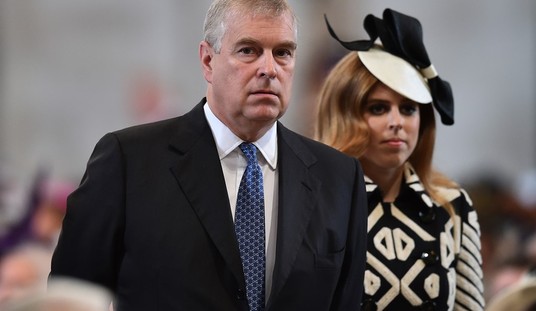There’s no doubt that Joe Biden has overseen a record-setting presidency in multiple areas, but they aren’t the records that the talking heads at MSNBC and CNN like to mention. All of the records for illegal immigration have been shattered to pieces and, while it’s harder to measure, the “most transparent administration ever” could readily be said to have set new records in secrecy. But now yet another record has fallen after standing for a decade and a half. American household debt has reached a level not seen since the beginning of the arrival of the Obama administration in 2008. The average American household is now carrying more than $142,000 in debt, adding up to a whopping $17 trillion across the country. And this is creating a threatening situation for American families, particularly when (not if) we enter the next period of recession. (Fox Business)
U.S. household debt jumped to the highest level since the 2008 financial crisis last year as mortgages surged amid high inflation and rising interest rates, according to a new analysis published by WalletHub.
The findings show that household debt – which increased by $320 billion in the final three months of 2022 – hit a 15-year-high of $17 trillion. On average, a typical household owed a total of $142,680 at the end of the year.
“We’re not quite to the breaking point, but U.S. households can’t afford to take on too much more debt, especially if the economy takes a turn for the worse,” said Jill Gonzalez, a WalletHub analyst. “People should be thinking about how to shed debt and get in shape for a recession, not assuming a bit more debt will make no difference.”
If the economy is supposedly undergoing a robust recovery after the pandemic, as White House officials continue to insist, how are people falling this far behind? One big piece of the puzzle is seen in mortgage debt. That rose by $290 billion last year. The average household owes more than $100,000 on their mortgage.
Credit card debt set another all-time record as well. The total balance on people’s credit cards climbed by $61 billion to $986 billion. That figure is almost $50 billion higher than the previous record that was set just before the pandemic began. People began saving money and paying down their card balances during the pandemic, but that trend has now reversed. This is happening at the worst possible time because the other record that was set was an increase in the average annual percentage rate being charged by credit card companies to 19.14%, the highest figure seen since 1991.
Most people won’t be looking to their retirement savings accounts for any comfort either. This week the Dow Industrials hit a new low for the year. (Wall Street Journal)
U.S. stock indexes suffered their worst session of the year Tuesday, dragged down by a disappointing forecast from Home Depot and growing concerns that the Federal Reserve will keep interest rates higher for longer.
After rallying sharply to kick off 2023, stocks have stumbled in recent weeks as hot economic data have made investors anxious about the trajectory of U.S. monetary policy.
Not all of these trends are the sole responsibility of the Biden administration. Both parties have been spending like drunken sailors when they take power for a while now. But the current administration’s policies certainly haven’t helped. We have lit vast amounts of imaginary money on fire and the economy responded as every financial analyst said it would. Inflation soared and pushed us into a recession by any classic definition of the word. And more of the same is on the horizon.
Yes, folks, Joe Biden is certainly breaking records and overseeing a historic presidency. Let’s just cross our fingers and hope we can survive two more years of this sort of “success.”








Join the conversation as a VIP Member